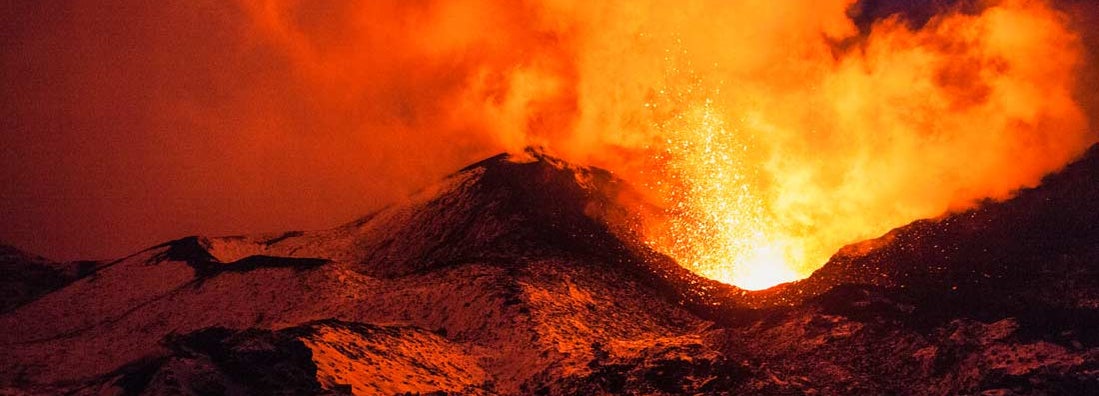Volcano Insurance
(Learn what states have active volcanoes)

If you are like most people, your primary knowledge of volcanoes comes from movies and school science projects. While volcanoes are great Hollywood material, volcanic eruptions have very real consequences.
In 1980, Mount St. Helens erupted in Washington, blowing off the top half of its peak. The combination of lava, ash, smoke and flames wiped out homes, businesses, roads, vehicles and wilderness for miles in all directions.
If you live near an active or dormant volcano, you should know that there is insurance coverage available to you that could really make a difference when the unexpected happens. Volcano insurance endorsements are solutions that make sense for a certain group of homeowners.
Our independent agent matching tool will find you the best insurance solution in your area. Tell us what you're looking for and we'll recommend the best agents for you. Any information you provide will only be sent to the agent you pick.
FAQs About U.S. Volcanoes
- There are 98 known volcanoes in Alaska, 21 in California and 16 in Hawaii
- 17 states are home to known volcanoes
- The eruption of Mount St. Helens in 1980 is one of the largest eruptions ever recorded; 90 people died and the eruption caused $860 million in damage
Are There Volcanoes in My Part of the Country?
Known volcanoes exist in 17 states, many of which have not erupted in millions of years. Kilauea in Hawaii has been continually erupting for the last 30 years. The U.S. Geological Survey provides the latest information about known volcanoes.
Every now and then, the survey will locate a new volcano based on seismic activity, changes in heights of mountains and a buildup of magma under the earth’s surface in a particular part of the country.
The following states have active volcanoes:
- Alaska
- California
- Hawaii
- Oregon
- Washington
- Wyoming
States that have dormant or extinct volcanoes include:
- Arizona
- Colorado
- Idaho
- Mississippi
- Missouri
- Nevada
- New Hampshire
- New Mexico
- South Dakota
- Texas
- Utah
- Virginia
Alaska has the most volcanoes of all U.S. states, with 98 known active, dormant or extinct volcanoes. Oregon has 42 volcanoes, California has 21 and Hawaii and Washington both have 16.
Active, Dormant and Extinct Volcanoes
There are basically three types of volcanoes:
- Active volcanoes are currently erupting or have erupted in recent history.
- Dormant volcanoes have not erupted for hundreds or thousands of years, but have the potential to erupt again sometime in the future. Mount St. Helens in Washington state is an example of a dormant volcano which erupted in 1980 and again in 2008 after dormancy for thousands of years.
- Extinct volcanoes are those that have not erupted for years and show no signs of ever erupting again.
Is There Such a Thing as Volcano Insurance?
In 2010, there was a prominent volcanic eruption in Iceland that caused major problems for air traffic around Europe for weeks afterward. That eruption started some talk about introducing volcano insurance for businesses like airlines which may suffer some economic damage from volcanic activity.
Volcano policies don’t exist per se, but there are some companies that will offer volcano endorsements in low-risk states. Much of the property damage that may result from a volcanic event could be covered by a standard homeowners policy.
DID YOU KNOW?
It is important to look at the details of coverage in your policy to find out if you have or need coverage in the event of a volcano eruption.
Fire damage, smoke damage and perhaps rocks falling that hit your house may be covered under your homeowners insurance policy. Other volcano-related effects like flooding and earthquakes could require separate coverage, even if they can be traced to the volcanic event.
How to Determine if Volcano Coverage Is Available
If you live in a high-risk area like Alaska or Hawaii, it is a good idea to have home insurance coverage that can offer protection for volcanic events. You may be able to add a special endorsement to increase your coverage.
If you have a homeowners policy that covers fire and smoke damage plus some comprehensive coverage for falling objects, you may already have the protection you need from a volcanic eruption and won’t need special endorsements.
This is a good thing to discuss with an independent insurance agent who understands the risks in your area.
